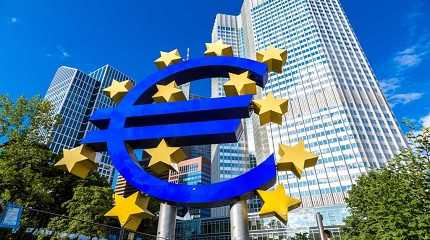
FRANKFURT, Feb. 3 (Xinhua) -- The European Central Bank (ECB) raised interest rates by 50 basis points on Thursday and signalled at least one more hike of the same magnitude in March.
"In view of the underlying inflation pressures, the Governing Council intends to raise interest rates by another 50 basis points at its next monetary policy meeting in March and it will then evaluate the subsequent path of its monetary policy," the bank said in a statement after the rate-setting meeting.
The decision came at a time of market speculation about rate hikes ending and even a possible rate cut by the central bank amid a potential economic slowdown.
Inflation in the region has continued to weaken for a third month in January, as consumer prices grew 8.5 percent year on year, down from 9.2 percent in December and a record high of 10.6 percent in October, said European Union statistics agency Eurostat on Wednesday.
Yet ECB President Christine Lagarde stressed that price pressures remain strong as energy costs spread, and inflation is still "way too high" from its 2-percent medium-term objective.
The ECB sent a "relatively determined message" with the "unusual" pre-announcement of the March increase and would go on to deliver a further massive rate hike in May, Nick Bennenbroek, international economist at Wells Fargo Economics, was quoted as saying by the Associated Press.
POLICY CONTINUITY
The interest rates on the main refinancing operations, the marginal lending facility and the deposit facility, will be increased to 3 percent, 3.25 percent and 2.5 percent respectively, as promised in December last year.
Lagarde noted that there should be "continuity and consistency" of its monetary policy, as the ECB struck a hawkish tone about its monetary policy in December 2022 when it said a 50-bp rate hike would continue for "a period of time."
To quell the doubts about ECB's seriousness in fighting against stubborn inflation, Lagarde reiterated that the central bank is not yet done and has more ground to cover.
The German Chamber of Industry and Commerce said the Governing Council's new interest rate decision was "inevitable," Europe-based news site Europeans24 reported on Thursday.
"Because the situation only appears to be more relaxed for businesses and individuals at first glance: in fact, core inflation is continuing to climb, so the inflation rate is primarily due to somewhat lower energy costs," Achim Dercks, deputy general manager of the chamber, was quoted as saying.
According to Lagarde, the central bank will use rate rises as its primary tool to keep interest rates at sufficiently restrictive levels to ensure a timely return of inflation to the medium-term target. The 50-bp rate hike in March should not be perceived as a commitment but a "forceful" intention.
ECONOMIC FALLOUT
The ECB's tightening monetary policy is piling pressure on the economic growth of the 20-member eurozone.
According to the ECB's staff projection in December 2022, economic activity has slowed markedly since mid-2022, and "we expect it to stay weak in the near term."
Economic growth in the eurozone nearly grounded to a halt in the fourth quarter of 2022, up by 0.1 percent over the previous quarter, showed the latest data from the European Union statistical office.
Lagarde conceded that the ECB's tightened monetary policies have increased borrowing costs. According to her, bank lending to firms has decelerated sharply as the demand for loans to finance business investment has become weaker.
As the ECB has continuously kept interest rates high, banks in the region have tightened credit standards for loans to both enterprises and households in the fourth quarter of 2022, according to the January 2023 euro area bank lending survey released by the ECB on Tuesday.
Consequently, the survey found that the decline in demand for housing loans was "the strongest on record," mainly driven by the general level of interest rates, lower consumer confidence and deteriorating housing market prospects.
"If the main driver of the economic outlook in 2022 was the energy crisis, in 2023 it's likely to be the ECB's response to it," Jamie Rush, chief European economist for Bloomberg Economics, and Maeva Cousin, an economist covering the euro area for Bloomberg Economics, noted in an earlier report.
"Higher projected interest rates mean we have revised down growth in the second half of 2023 -- the biggest risk right now," they added, "is that monetary policy has a greater impact on the economy than investors expect."




